- Home
- Peggy Webb
Flying Lessons
Flying Lessons Read online
“What lunatic said, ‘Just kiss and make up’?”
Beth: Could this be some kind of delayed empty-nest syndrome? Or maybe she’s finally realized she’s lost the real Beth—that skinny, unconventional woman with big dreams. Now all she has to do is fly solo, even for just a little while, and find them again.
Howard: As a psychiatrist, he can spot an anxiety attack in a packed mall, but he can’t recognize his wife experiencing a full-blown midlife crisis. Howard wants to make Beth happy, but when did the rules of marriage change…and who forgot to tell him?
Kate: As far as Kate’s concerned, Beth not only abandoned her father, but the whole family. And that is just not acceptable in Kate’s well-ordered world. Is image-conscious Kate the only one who can clean up the mess? Or will Beth’s freedom shine light on Kate’s cracking facade?
Peggy Webb
Peggy Webb is passionate about books, music, theater, gardening, her family, her friends and her dog. When she’s not writing, she’s either clipping roses in one of the gardens she designed and planted, acting on stage at her local community theater in roles such as M’Lynn Eatenton in Steel Magnolias, singing in her church’s choir, at her vintage baby grand playing blues, visiting children in far-flung places or laughing with friends. She also writes screenplays, serves on Tupelo’s Film Festival committee and claims to make the best walnut bread in two states (Mississippi and Alabama).
This native Mississippian launched her career with a book that hit number one on romance bestseller lists and earned her the Waldenbooks Bestselling New Author Award. Since then, her more than fifty novels have consistently appeared on bestseller lists and won national awards.
She shares her love of books with her students at Mississippi State University as well as lecture audiences throughout the U.S., and she shares her home with the perfect male—her dog.
Flying Lessons
PEGGY WEBB
From the Author
Dear Reader,
When I started writing this book, the Gulf coast of my beloved Mississippi was a sun-kissed spot of beach villages and sea glass and charm. Hurricane Katrina destroyed all that, leaving thousands of people stripped of homes, schools, churches, businesses and most of all, loved ones.
But Katrina has not destroyed hope. Mississippians are a staunch, proud people who know how to rise from the ashes. My son is one of the thousands of emergency personnel who will spend the next year rebuilding the towns and villages.
The Gulf coast in Flying Lessons is the one in our memories.
It is my tribute to the courage and resilience of all those who suffered loss and to the compassionate spirit of all those who came to their aid.
As a thank-you to my loyal fans, I’ll be giving away book bags for Flying Lessons. Go to www.peggywebb.com for contest details.
Sincerely,
Peggy Webb
In memory of Daddy,
my hero against whom all others are measured.
CONTENTS
PART ONE
CHAPTER 1
CHAPTER 2
CHAPTER 3
CHAPTER 4
CHAPTER 5
CHAPTER 6
CHAPTER 7
CHAPTER 8
CHAPTER 9
CHAPTER 10
PART TWO
CHAPTER 11
CHAPTER 12
CHAPTER 13
CHAPTER 14
CHAPTER 15
CHAPTER 16
CHAPTER 17
PART THREE
CHAPTER 18
CHAPTER 19
CHAPTER 20
CHAPTER 21
CHAPTER 22
CHAPTER 23
CHAPTER 24
CHAPTER 25
PART ONE
CHAPTER 1
“If this is my life, I want a refund.”
—Beth
I don’t look like the kind of woman you’d think would run away from home. But here I am in Huntsville, Alabama, wishing I could stamp Cancelled on my marriage license and go off somewhere and become somebody else—anybody except Elizabeth Holt Martin, boring, dowdy wife of Dr. Howard Martin.
This strange restlessness is partially why I drove one hundred and fifty miles and paid five hundred dollars to listen to a woman with three degrees and an overbite tell me how to cope with my life. Glenda Wiggs is her name, B.S., M.S., Ph.D., heavy on the B.S.
“Or-gan-ize.” She stretches her words, either to lend weight and credibility or to work up a sweat so she won’t freeze in this room where the air conditioner is turned up cold enough to kill hogs. “You must keep lists.”
She sounds just like my husband. I could have stayed home and saved my money.
“Pri-ori-tize!” Wiggs shouts.
I wonder where she would put, Resist the urge to stand in the aisle at Wal-Mart in front of the Tampax display, cursing your dried-up eggs? I did that last Tuesday, and Howard asked if I wanted him to write a prescription for Prozac. He’s a psychiatrist, which says it all. He can spot a patient having an anxiety attack in a packed mall, but he can’t recognize a wife in midlife crisis at Wal-Mart—let alone a wife having an attack of lust in his own bedroom.
Last weekend, in a last-ditch effort to get Howard to notice me, I tossed my panties on the bedpost.
“Elizabeth,” he said, “there’s a hole in your underwear.”
“That’s not a hole, Howard. They’re crotchless.”
I didn’t even get an acknowledgment from him, much less a rise. The salesgirl at Naughty but Nice had said they were guaranteed to work. Obviously, the panties were flawed.
Of course, you have to consider Howard. He wears two-piece pajamas to bed and then folds them into thirds every morning, even when they’re dirty and he’s going to put them in the laundry hamper. I used to love Howard’s sense of order and neatness, but lately I’ve wanted to take his precisely folded, accusatory pajamas and stomp them. Instead, I refold them into sloppy halves, toss them back under the pillow and say, There, take that.
I don’t know what’s wrong with me. My Lord, I’m fifty-three and my older daughter, Kate, left the nest ten years ago. Of course, my late-in-life child, Jenny, will be leaving for college this fall, so technically I could be suffering delayed empty-nest syndrome. But it’s more than that, I think. I feel like somebody who got all dressed up for the parade and by time I got there, it had already passed by.
Sitting here, on a hard chair in the Imperial Room at the Marriott on Tranquility Base, I forget about folded pajamas and failed panties. Instead, I look out the window at the Saturn Five rocket dominating the Space Center, thrusting toward the wide open spaces, grand and glorious and phallic.
Wouldn’t I love to get on that and ride? I’d go straight to the moon—both ways. I’d forget that my nest is empty, my eggs are dried up and my husband can’t find the henhouse.
We don’t even have conversations anymore. He hasn’t started one with me in three years that doesn’t begin with, “Elizabeth, where are my…?” Fill in the blank. “Where are my gray socks, my car keys, my reading glasses, my hemorrhoid suppositories?”
Who am I trying to kid? It’s not Jenny’s exodus to college I mind. It’s not even creeping age, missing car keys and socks. It’s sex. I can’t remember the last time Howard and I had sex.
“Beth…” My friend Jane startles me out of my reverie. She’s the only person who calls me by my childhood nickname. I’d love her for that alone, but she’s also full of every good thing I can imagine—kindness, truth, laughter, loyalty and love. She’s like a Mars bar brimming with nuts and marshmallows and caramel and chocolate. Once you get a taste of Jane Meaders, you don’t let her go.
I glance around the cold room where women are milling about talking in that too-sweet drawl
Southern women use when they’re telling lies under the guise of being polite. Jane has turned sideways in her chair and is giving me a funny look. “Are you having another hot flash?”
“No. I don’t have hot flashes. I just sweat a little at night, is all.”
“Same thing.” Jane’s nine years older than I am, and thinks of herself as my mentor in all things female, which covers everything from menopause to self-exams for breast cancer to how to remove rust rings from the bathtub. Which is fine by me. When you don’t know where you’re going, it’s good to have a best friend who has already traveled the road.
“Let’s get out of here,” she says. We hurry toward the parking lot without looking back and without one iota of guilt. If there’s one good thing about being over fifty, it’s the ability to leave in the middle of a boring lecture without being labeled bad-mannered. What people think is weak bladder.
We toss our purses into the backseat of Jane’s new silver Sequoia, and she says, “Whose idea was this anyway, yours or mine?”
“Howard’s.”
“Well, that explains it. Which way’s the mall?”
I hate malls—too many three-way mirrors—but I check the map, anyhow, because Jane loves to shop. As we head toward University Drive, I forget about having an itch Howard won’t scratch. Spring takes my breath away. I’ve always said, “May in Mississippi can make you weep.” The same is true of Alabama or Georgia or any other state in the Deep South. Mother Nature puts on such a show of greenery and blossom, it looks as if she’s trying to compensate for all the tornadoes she sends our way. Creeping purple phlox hides the raw red-clay hills, wisteria cascades from magnolia trees in sweetly scented curtains, and the fragrance of wild honeysuckle spilling over fences makes you drunk on happiness for no reason at all. Gardens riot with explosions of golden forsythia, parades of iris in white and yellow and blue, and arbors bending under the weight of climbing pink roses.
I almost say, “Jane, it’s too pretty to be indoors. Let’s head straight to the botanical gardens.” I don’t though. Somewhere between the ages of twenty and fifty I turned into my timid aunt Bonnie Kathleen.
In college I was going to be Edna St. Vincent Millay, compose great symphonies instead of poetry and live a wild, rich bohemian life that would be as far removed from Aunt Bonnie Kathleen’s vision for me as possible. She’s the maiden aunt who raised me. My mother died in childbirth, and Daddy, unable to cope with the loss and a baby girl at the same time, left me in the care of his only sister. Aunt Bonnie Kathleen dished out love and discipline in equal but cautious doses. Her idea of keeping me in line was the dire warning, “I swear, Elizabeth, if you wear that red dress (or cut your hair, or drive that car or do whatever else she didn’t want me to do), I’m going to have a prostration attack.” It worked, not because I feared that bogus malady but because I couldn’t bear to hurt her feelings.
Eighteen and newly freed from the strict eye of Aunt Bonnie Kathleen, I wore gypsy skirts and purple lipstick, wrote a song called “Love is a Bus” and spouted radical opinions. Once, I danced naked on the balcony of the Tri Delta house while I ate cherries from a jar. Now I wear Martha Stewart–like clothes, copy recipes from Good Housekeeping and worry that I’ve lost the real Beth—that skinny, unconventional woman with the big dreams—somewhere along the way.
Well, certainly I’ve lost skinny. Last week while Howard was snoring on his side of the bed and I was tossing and burning on the other, I sneaked into the kitchen and ate peanut butter from the jar. All of it.
That’s why I hate stores with three-way mirrors. Even Ann Taylor, Jane’s favorite.
“One of the compensations of growing old,” she says as we bypass the bargain rack and select from the new arrivals without even checking the price tags. “Fat pocketbooks.”
“Fat behinds.”
“Beth, you’re not fat. Trust me. At a certain age, the weight shifts.”
“How come it didn’t shift to my breasts where I needed it?”
“Gravity.” She should talk. Jane’s tall and elegant, a perfect size eight. She grabs a blue dress off the rack and thrusts it toward me. “Here, try this one on. It looks like you.”
I squeeze into the dress, which matches my eyes.
“Buy it. The blue makes the gray streaks in your hair look like blond highlights,” Jane says. The trick to being a good friend is knowing when to make you feel better with a lie and when to shake some sense into you with the truth. This is a feel-good lie.
“It’s too small. Since when did they start making size twelves this small?” I complain.
“They’re skimping on material. Let’s get an ice-cream sundae, then head out to the botanical gardens before they close.”
Jane’s reading my mind—another reason I love her. I guess that’s the way it is with friends of thirty years. When I married Howard and moved to Tupelo, a young Gulf Coast bride pining for sea and surf and sand, plopped down in the pine hills of northeast Mississippi where I had to drive twenty miles for the nearest whiff of water, Jane took me under her wing. We met at Village Books where we were both reaching for the same copy of Edna St. Vincent Millay’s biography, Savage Beauty. She showed me the best place to buy good cuts of rump roast, the church with the best choir and later—after I really got to know her—the best place to do the primal scream. She drove up the Natchez Trace Parkway on the outskirts of Tupelo to a hill overlooking nothing but farmland, then said, “Just let her rip. Nothing but cows to hear.”
It’s been so long now I can’t remember why I went, but that was the only time I ever used the screaming hill. Not because there haven’t been plenty of reasons, but because I told myself grown-ups don’t act like that: they don’t just go around letting emotions rip and scaring cows.
Nowadays, the only time I let my emotions rip is when I’m eating lobster dripping with butter or ice-cream sundaes with lots of nuts and a mountain of whipped cream. Lord knows, I don’t get a chance in the bedroom.
Jane eats in silence, but I make humming sounds of pleasure.
In malls, ice cream is always served with plastic spoons that are too small, so it takes us a while to finish. By the time we arrive at Huntsville’s Botanical Gardens, we have only an hour left before closing. The handsome sixtyish man who takes our money looks as if he might have retired from the military. Milton, his name tag reads. He has the cropped close hair and the upright bearing of somebody accustomed to giving and taking orders.
“Senior’s discount,” Jane says, then hands him three dollars and fifty cents.
“This I don’t believe.” The smile Milton flashes shows straight white teeth that are either the best dentures I’ve ever seen or a miracle of nature. “I’ll have to see your driver’s license.”
He’s flirting with Jane. Most men do, even thirty-year-olds. When she pulls out her license, he says, “Unbelievable.”
I take five dollars out of my purse.
Barely glancing my way Milton says, “Three-fifty, please.”
Even if he had looked at me more closely he would probably have said the same thing. Nobody would ever describe me as a beautiful older woman. The most I can hope for is attractive, and that’s stretching it.
“I’m fifty-three.”
I hand over the five dollars and, for a moment, I think he’s going to ask for proof. He takes my money, then waves us through.
“Jackass,” Jane mutters when we’re out of hearing.
“He’s just doing his job.”
“Still…”
It’s such a small thing, being mistaken for a senior citizen nine years before the fact, but even so I suddenly see my life as a series of small defeats. The concerts I never played, the music gathering dust, even the elementary school carnival that lost money the year I was PTA president.
I used to tell myself I had plenty of time to do whatever I wanted, but I don’t do that anymore; I just bury myself in the routine of being Howard’s wife, Jenny and Kate’s mother, little Bonnie’s grandmo
ther and until a month ago, caretaker to Aunt Bonnie Kathleen. My only connection to music is serving on the board of the symphony league…if you don’t count the symphony I’ve been composing off and on for twenty years. More off than on because I simply can’t hear the music anymore.
Jane and I smell the roses before we see them. We round the corner to a profusion of deep red blooms dripping from a wrought-iron arbor.
“I wish mine would bloom like that,” Jane says. “Last year I had only fifty roses on my climbing Don Juan.”
“I had aphids and black spot blight.”
“You should try spraying with soda and liquid detergent mixed in water. I’ll give you the formula.”
“Umm-hmm,” is all I say because I’m snatched inside out by the young couple coming toward us.
The man has a deep tan and the longish kind of hair that looks good windblown, and the young woman, who could be Carly Simon’s double except pregnant, is laughing at something he said and holding on to her slightly bulging abdomen. They linger beside a New Dawn climber, kissing, and I picture them in a small apartment where you have to step over the coffee table to get to the bathroom. I imagine them tangled together in a brass bed in broad daylight, breathing each other in, loving in the fierce, jubilant way of people who have their whole lives before them.
When was the last time Howard and I loved like that? When was the last time we left the light on?
I don’t even own underwear that matches anymore.
I imagine this young couple’s baby coming into the world, a little girl with red hair like her mother’s. I picture the young woman bending over the bassinet while her child sleeps, burying her face in the downy hair, inhaling the fragrance of baby powder and innocence.

 Magnolia Wild Vanishes (A Charmed Cat Mystery, Book 1)
Magnolia Wild Vanishes (A Charmed Cat Mystery, Book 1) Just One Look
Just One Look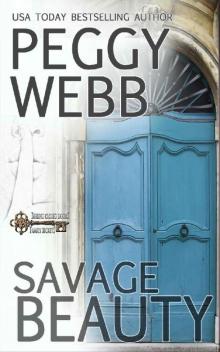 SAVAGE BEAUTY
SAVAGE BEAUTY Elvis and the Devil in Disguise (A Southern Cousins Mystery With Bonus Charmed Cat Mystery)
Elvis and the Devil in Disguise (A Southern Cousins Mystery With Bonus Charmed Cat Mystery) Elvis and the Blue Suede Bones
Elvis and the Blue Suede Bones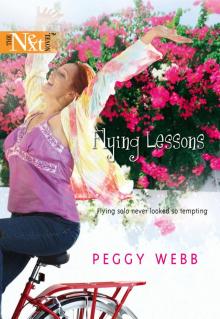 Flying Lessons
Flying Lessons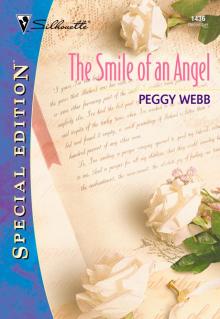 The Smile of an Angel
The Smile of an Angel Any Thursday (Donovans of the Delta)
Any Thursday (Donovans of the Delta) Stars to Lead Me Home: Love and Marriage (A Novel)
Stars to Lead Me Home: Love and Marriage (A Novel)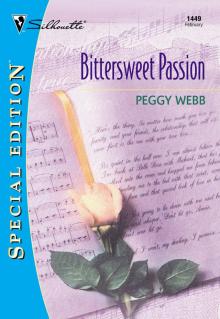 Bittersweet Passion
Bittersweet Passion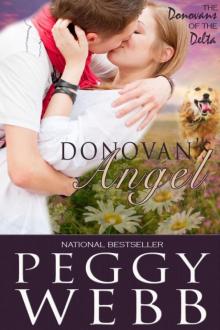 Donovan’s Angel
Donovan’s Angel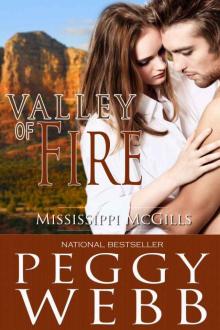 Valley of Fire (The Mississippi McGills)
Valley of Fire (The Mississippi McGills)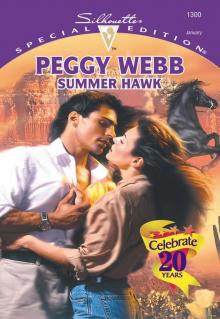 Summer Hawk
Summer Hawk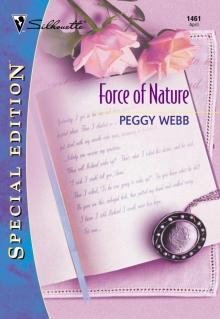 Force Of Nature
Force Of Nature Christmas in Time
Christmas in Time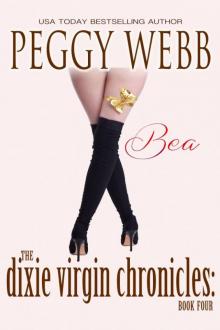 The Dixie Virgin Chronicles: Bea (Book 4)
The Dixie Virgin Chronicles: Bea (Book 4)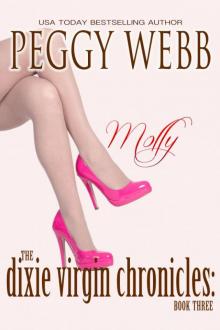 The Dixie Virgin Chronicles: Molly (Book 3)
The Dixie Virgin Chronicles: Molly (Book 3)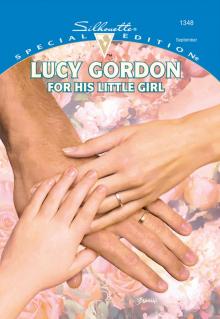 Gray Wolf's Woman
Gray Wolf's Woman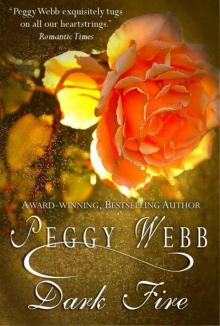 Dark Fire
Dark Fire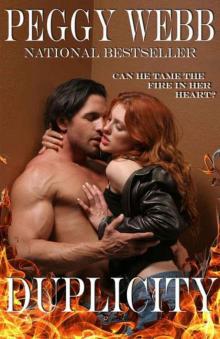 Duplicity
Duplicity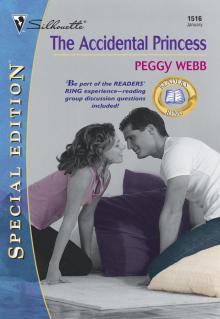 The Accidental Princess
The Accidental Princess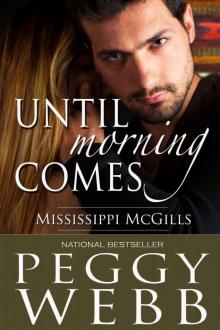 Until Morning Comes (The Mississippi McGills)
Until Morning Comes (The Mississippi McGills)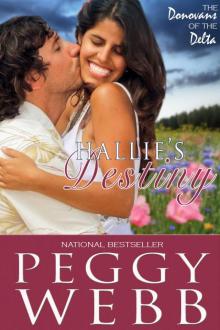 Hallie's Destiny (The Donovans of the Delta)
Hallie's Destiny (The Donovans of the Delta)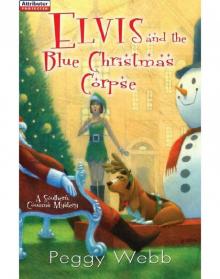 Elvis and the Blue Christmas Corpse
Elvis and the Blue Christmas Corpse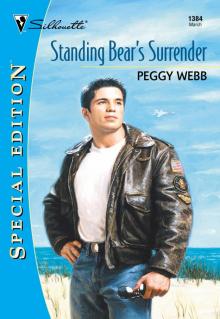 Standing Bear's Surrender
Standing Bear's Surrender Warrior's Embrace
Warrior's Embrace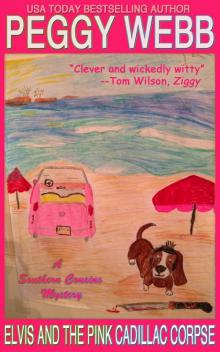 Elvis and the Pink Cadillac Corpse (A Southern Cousins Mystery, Plus Bonus Recipes)
Elvis and the Pink Cadillac Corpse (A Southern Cousins Mystery, Plus Bonus Recipes)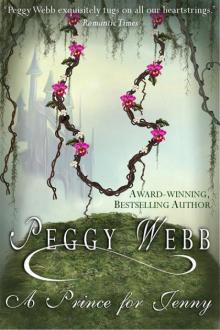 A Prince for Jenny
A Prince for Jenny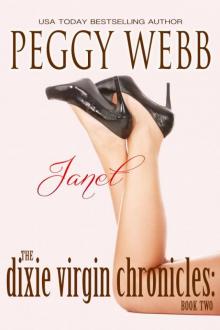 The Dixie Virgin Chronicles: Janet (Book 2)
The Dixie Virgin Chronicles: Janet (Book 2)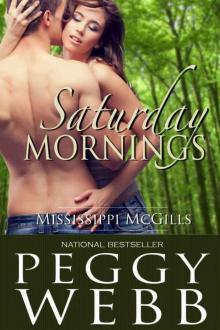 MM03 - Saturday Mornings
MM03 - Saturday Mornings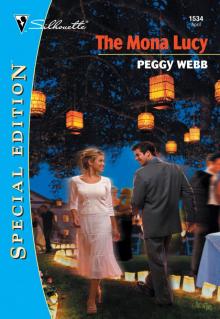 The Mona Lucy
The Mona Lucy The Christmas Feast
The Christmas Feast Higher Than Eagles (Donovans of the Delta)
Higher Than Eagles (Donovans of the Delta)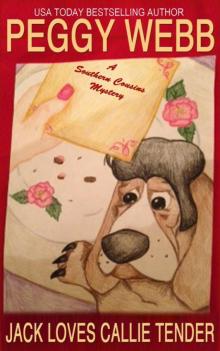 Jack Loves Callie Tender
Jack Loves Callie Tender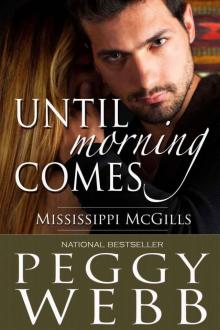 MM02 - Until Morning Comes
MM02 - Until Morning Comes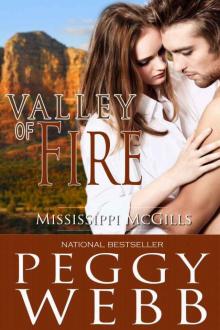 MM01 - Valley of Fire
MM01 - Valley of Fire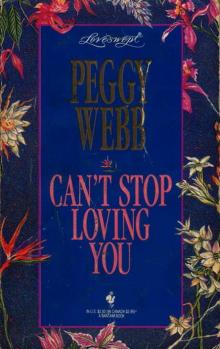 Can't Stop Loving You
Can't Stop Loving You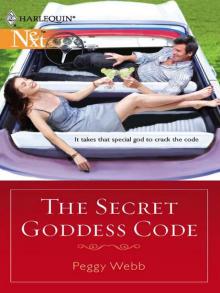 Secret Goddess Code
Secret Goddess Code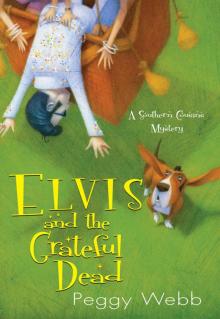 Elvis and the Grateful Dead
Elvis and the Grateful Dead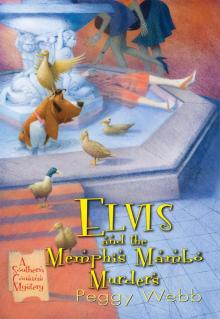 Elvis And The Memphis Mambo Murders
Elvis And The Memphis Mambo Murders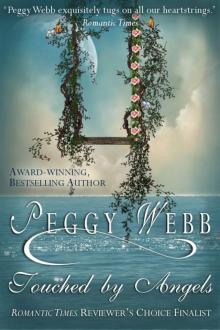 Touched by Angels
Touched by Angels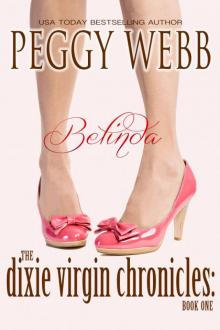 The Dixie Virgin Chronicles: Belinda (Book 1)
The Dixie Virgin Chronicles: Belinda (Book 1)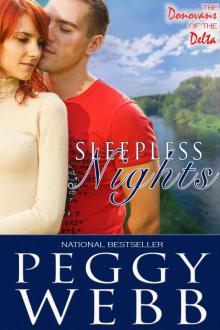 Sleepless Nights (The Donovans of the Delta)
Sleepless Nights (The Donovans of the Delta)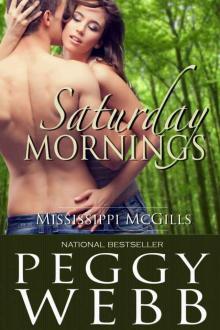 Saturday Mornings (The Mississippi McGills)
Saturday Mornings (The Mississippi McGills)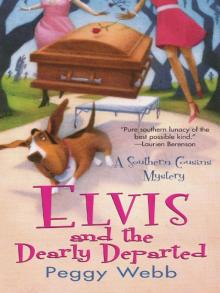 Elvis and The Dearly Departed
Elvis and The Dearly Departed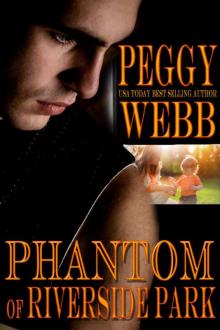 Phantom of Riverside Park
Phantom of Riverside Park